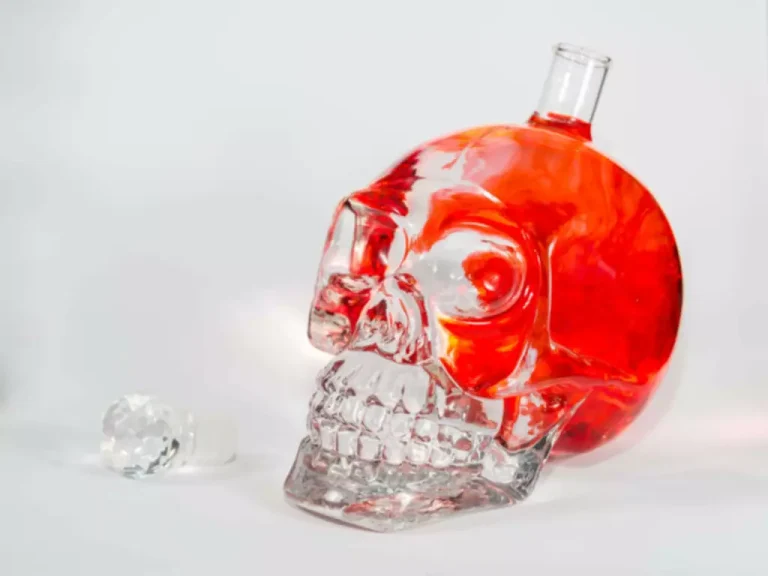
However, it is important to delve deeper into the psychological impact that regular after-work drinking can have on individuals. In the United States, moderate drinking for healthy adults is different for men and women. It means on days when a person does drink, women do not have more than one drink and men do not have more than two drinks. Many people drink alcohol as a personal preference, during social activities, or as a part of cultural and religious practices. Knowing your personal risk based on your habits can help you make the best decision for you.
目录 · Table of Contents
Alternatives to after-work Drinks
- Social support is also crucial, as isolation can exacerbate the risk of relapse.
- Our writers and reviewers are experienced professionals in medicine, addiction treatment, and healthcare.
- Our team does their best for our readers to help them stay informed about vital healthcare decisions.
- “Coming from a place of empathy and care is more productive than a disciplinary type meeting,” advises William Stonehouse III, president and co-founder of Crawford Thomas Recruiting.
By Lindsay CurtisCurtis is a writer with over 20 years of experience focused on mental health, sexual health, cancer care, and spinal health. At this point, you may have alcohol cravings or drink to avoid the low feelings withdrawal causes rather than for the pleasurable feelings alcohol consumption may offer. Over time, your brain’s structure and function change, leading to tolerance, meaning you may require higher amounts of alcohol to achieve the desired effects. These brain changes contribute to the compulsive nature of addiction, making it difficult to abstain from alcohol.
Mental Health Consequences of Routine After-Work Alcohol Use

Symptoms of binge drinking can be hard to decipher, especially for older adults. Faye works for a leading UK financial institution and was motivated to improve alcohol awareness among her colleagues at work having seen her own drinking creeping up to harmful levels. It’s not surprising therefore that more than 25 million adults in England regularly drink alcohol and statistically, drinkers are more likely to be employed than non-drinkers. It is widely acknowledged that we live in an alco-centric society where alcohol plays a central role in many of our lives. We use it to celebrate the good times, commiserate the bad times, to socialise, to wind down and sometimes just to try to cope.
- People who drank about 200 to 300 mg of caffeine a day had a lower risk of cardiometabolic disease, compared to those who drank less than 100 mg a day.
- Alcohol use disorder is a pattern of alcohol use that involves problems controlling your drinking, being preoccupied with alcohol or continuing to use alcohol even when it causes problems.
- However, such gatherings can also lead to less desirable outcomes, including unfiltered speech, unplanned commitments, and unprofessional conduct (TLNT).
Questions to help assess your alcohol habits
If you choose to drink alcohol, doing so responsibly can help you stay away from hangovers. A hangover is a group of unpleasant symptoms that can happen after drinking too much alcohol. As if feeling awful weren’t bad enough, frequent hangovers also are linked with poor performance and conflict at home, school and work. When it comes to alcohol, if you drinking after work don’t drink, don’t start for health reasons. Alcoholics Anonymous is available almost everywhere and provides a place to openly and nonjudgmentally discuss alcohol issues with others who have alcohol use disorder.
Workplace warning signs and next steps
Combining alcohol with other depressant-type medications—whether over-the-counter preparations, prescription, or recreational drugs—can have serious effects on the respiratory and central nervous systems. If blood alcohol concentration is higher than 0.4, there is a 50 percent chance of death. Since alcohol is a depressant, it can slow the breathing, leading to a lack of oxygen to the brain. Within minutes of consuming alcohol, it is absorbed into the bloodstream by blood vessels in the stomach lining and small intestine. However, when researchers evaluate these potential factors, the risks outweigh any benefits. A comprehensive 2015 review found that alcohol use is one of the leading contributors to pancreatitis because it causes the pancreas to produce toxic substances.

- Alcohol is the most widely misused substance, and frequent drinking can lead to a dependence and/or an addiction.
- When it comes to the effect on sleep patterns, alcohol consumption can disrupt the delicate balance necessary for a good night’s rest.
- This disorder also involves having to drink more to get the same effect or having withdrawal symptoms when you rapidly decrease or stop drinking.
- Additionally, grabbing a drink after work can open the door to situations that companies and employees want to steer clear of.
- “Unlike coffee and tea, which are rich in healthful compounds, energy drinks lack these natural benefits and can increase risks like high blood pressure.
Notably, individuals with a family history of alcoholism should exercise increased caution. Long-term alcohol use has been shown to decrease myocardial protein expression and synthesis while accelerating protein degradation in the heart muscle, further contributing to cardiovascular deterioration. Moreover, repeated binge drinking, defined as consuming multiple drinks in a short timeframe, has been correlated with an increased likelihood of developing prehypertension, a precursor to https://ecosoberhouse.com/article/alcohol-help-now-where-to-get-help-for-alcohol-addiction/ full-blown hypertension.


